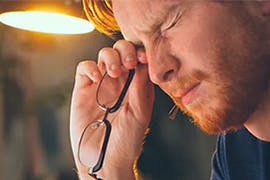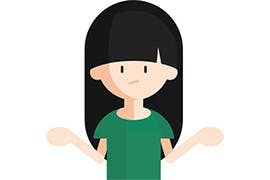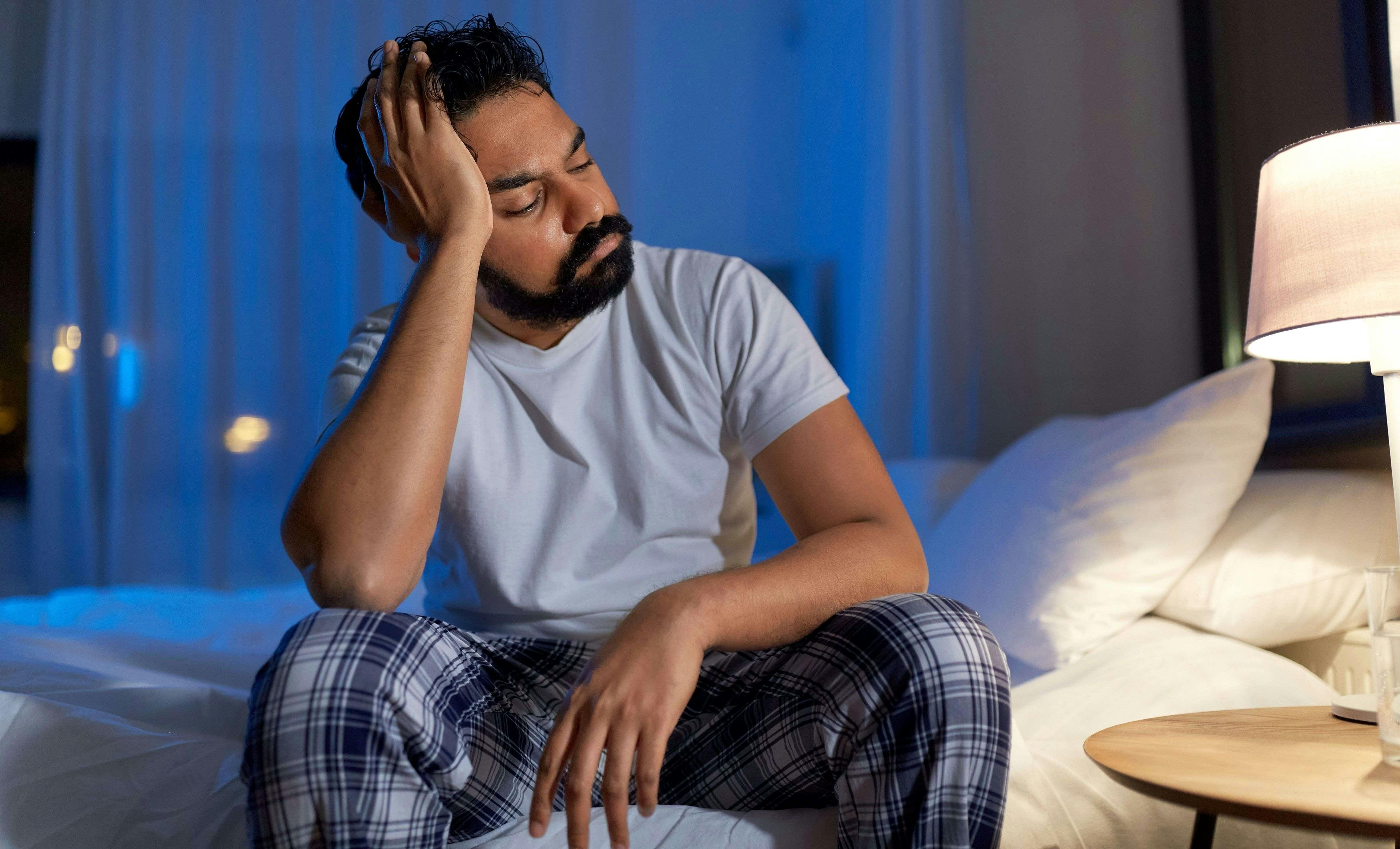Nighttime Headaches: Causes, Symptoms, and Treatments
Headaches at any time of the day can painfully disrupt your routine, but when they interfere with sleep, headaches often also lead to grogginess and irritability. Whether your nighttime headaches start as you’re getting ready for bed or wake you up in the middle of the night, they can usually be treated or prevented.1 Learn the causes of different types of nighttime headaches to find out how to avoid experiencing headache pain at night.
Nighttime Headache Causes and Symptoms
A headache can refer to pain in any region of the head and may occur on both sides of the head, be isolated in a certain location or radiate across the head.1,2 Headaches may involve sharp pain, dull aching pain or a throbbing sensation.2 Depending on the type of headache you experience at night, the cause of your headache and your treatment options differ.1
Tension Headaches
Tension headaches are the most common type of headache and can occur during the day or the night.1 The pain associated with tension headaches ranges from mild to severe.1
Although the exact cause of tension headaches is unknown, they’re typically triggered by stress, exhaustion and muscle tension. After a long or stressful day, you may experience a nighttime tension headache. For some people, teeth grinding during sleep can trigger a tension headache and may even wake them.
Common tension headache symptoms include:1
- Pain on both sides of the head or forehead
- Dull, aching or squeezing head pain
- Slow onset of pain
- Mild to moderate pain
- Tenderness in your neck, shoulders or scalp
Tension-type headaches usually do not cause nausea, vomiting or light sensitivity. 1
Cluster headaches
Cluster headaches cause severe pain.1 They tend to occur several times within a span of weeks or months before disappearing.1 People sometimes describe cluster headaches as feeling like an ice pick is in their eye. Cluster headaches often start at night, a few hours before going to bed. The cause of cluster headaches is unknown, and they don’t appear to have any triggers. Symptoms of cluster headaches include:1
- Severe head pain, typically located around one eye
- Headaches that repeat at the same time each day
- Pain that begins on one side of the head
- Redness, swelling, drooping or tearing in the affected eye
- Stuffy or runny nose
Migraines
Migraines cause severe head pain accompanied by other uncomfortable symptoms.3 They can occur at any time of the day or night.3 Although the exact cause of migraines is currently unknown, they are often triggered by various factors including:3
- Stress
- Hormonal changes
- Weather or other environmental changes
- Certain foods and food additives
- Changes in sleep patterns
- Sensory stimuli like smells, sounds or lights
Unlike tension headaches, migraines often involve symptoms beyond head pain. Migraine symptoms can begin up to two days before experiencing migraine head pain.3 Migraine auras can occur before or during a migraine attack and may include visual phenomena, like seeing bright spots or flashes of light, or vision loss.3 Common migraine attack symptoms include nausea or vomiting, extreme sensitivity to noise and light and blurred vision.3
Hypnic headache
Unlike other nighttime headaches, hypnic headaches occur exclusively at night. Also known as an alarm clock headache, they tend to happen at the same time every night and awake people from their sleep.4 Hypnic headaches are rare and usually begin after age 50.4
Pain associated with hypnic headaches ranges from mild to severe and typically occurs on both sides of the head.4 Other symptoms of hypnic headaches include:4
- Waking up with a headache more than 10 nights per month
- Headache pain that lasts between 15 minutes to 4 hours after waking up
- Nausea and vomiting
Headache symptoms can sometimes overlap with other conditions and medical problems.1 If you experience head pain or other symptoms of nighttime headaches, contact your healthcare provider for a diagnosis.
How to Get Nighttime Headache Relief
If you have nighttime headaches or headaches that awaken you during sleep, talk to your healthcare provider for an accurate diagnosis.1 Treatment for nighttime headaches varies, depending on the type of headache and their underlying causes.1 Your healthcare provider can advise the best course of treatment based on your age, medical history and other related factors.1 Effective nighttime headache management may include a combination of medication and lifestyle changes.1 Lifestyle changes to prevent and treat nighttime headaches may include:1
- Avoiding known headache triggers, like certain foods and beverages and lack of sleep
- Eating a healthy diet
- Exercising regularly
- Resting in a quiet, dark environment
- Stress management
Not all types of nighttime headaches can be effectively treated through changes to your lifestyle. Migraine and cluster headaches, for example, typically require medication.1 Your healthcare provider may recommend one or more types of medication to manage your nighttime headache symptoms.1
- Rescue medicines. Medicines bought over the counter, like painkillers, stop the headache as it comes on. Some headache medicines, like Excedrin PM headache, combine effective pain relievers with a sleep aid to specifically treat nighttime headaches.
- Preventive medicines. If recommended by your healthcare provider, some medicines may be taken daily to reduce the onset of nighttime headaches.
- Abortive medicines. Your healthcare provider may prescribe headache medicine that acts on specific receptors in nerves and blood vessels in the head to stop a headache in progress.
Nighttime headaches cause discomfort and disrupt your sleep routine but can often be avoided with medication and other headache management strategies. To learn more about treating nighttime headaches, visit the Excedrin headache hub.
Source Citations:
- Headache. https://www.hopkinsmedicine.org/health/conditions-and-diseases/headache. Accessed 4/22/2022.
- Headache. https://www.mayoclinic.org/symptoms/headache/basics/definition/sym-20050800. Accessed 4/22/2022.
- Migraine. https://www.mayoclinic.org/diseases-conditions/migraine-headache/symptoms-causes/syc-20360201. Accessed 4/22/2022.
- Hypnic Headache. https://americanmigrainefoundation.org/resource-library/hypnic-headache/. Accessed 4/22/2022.









